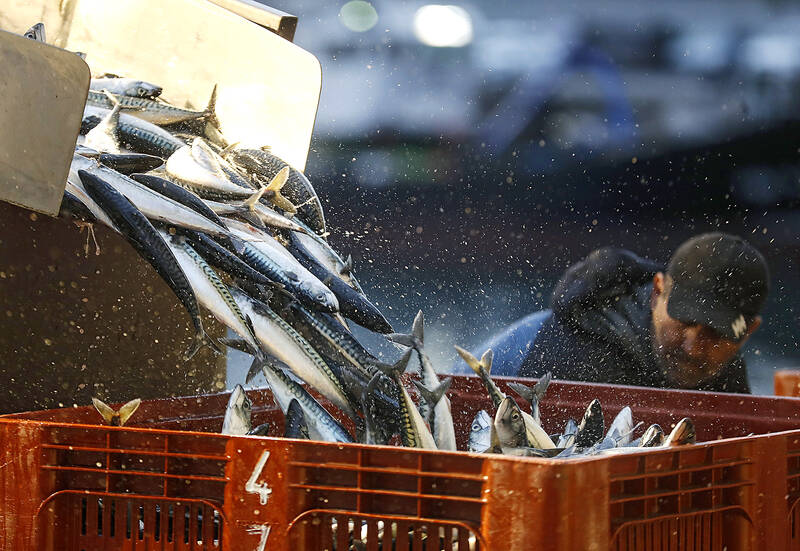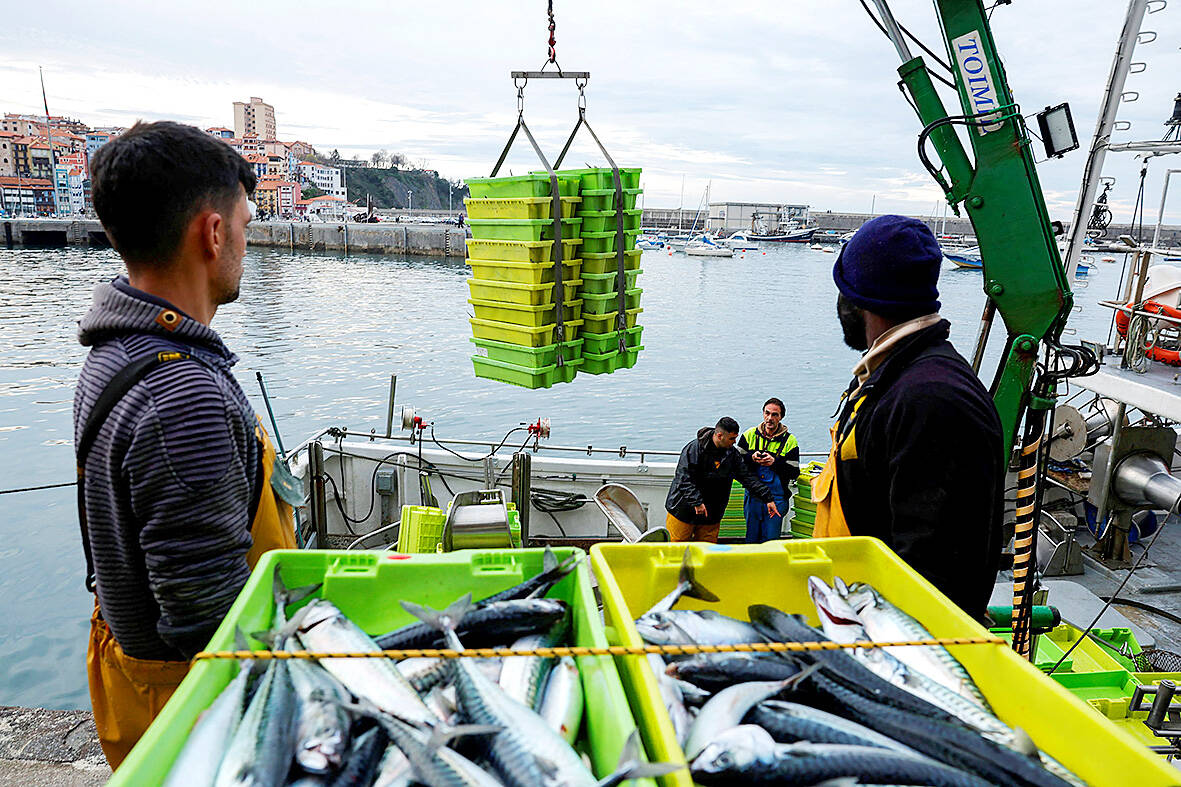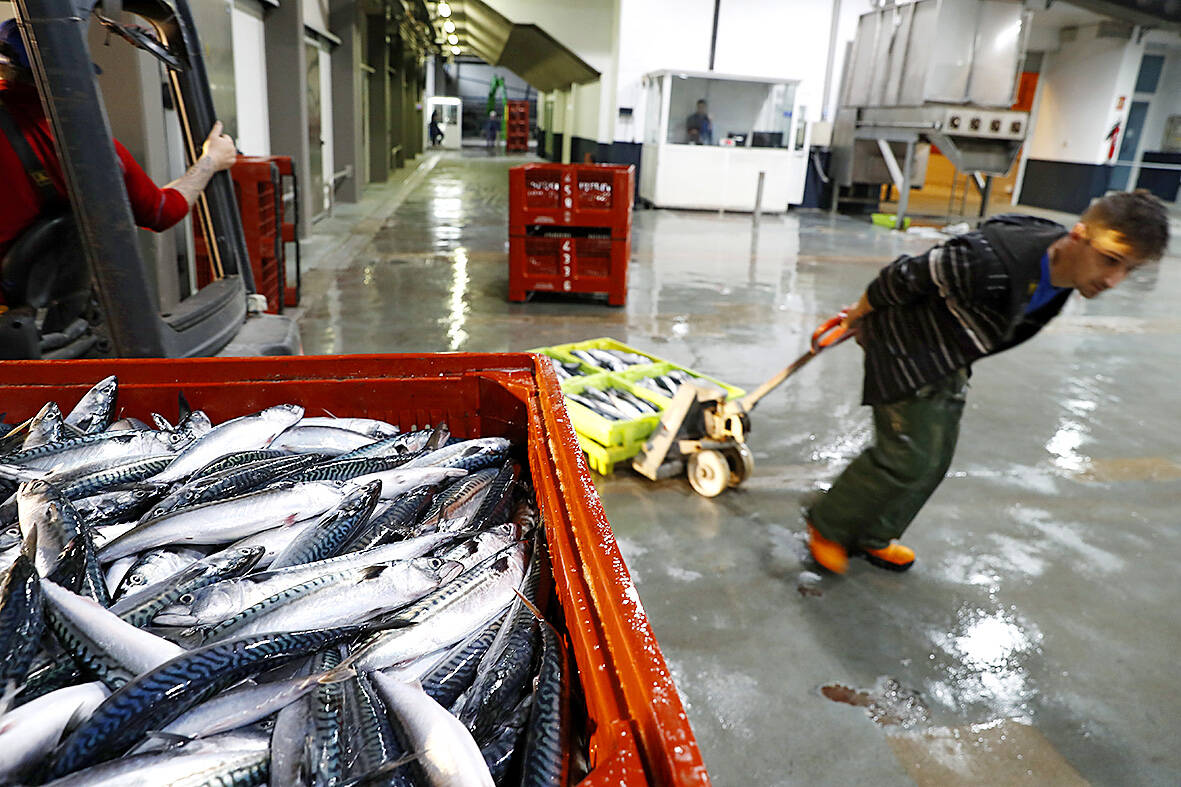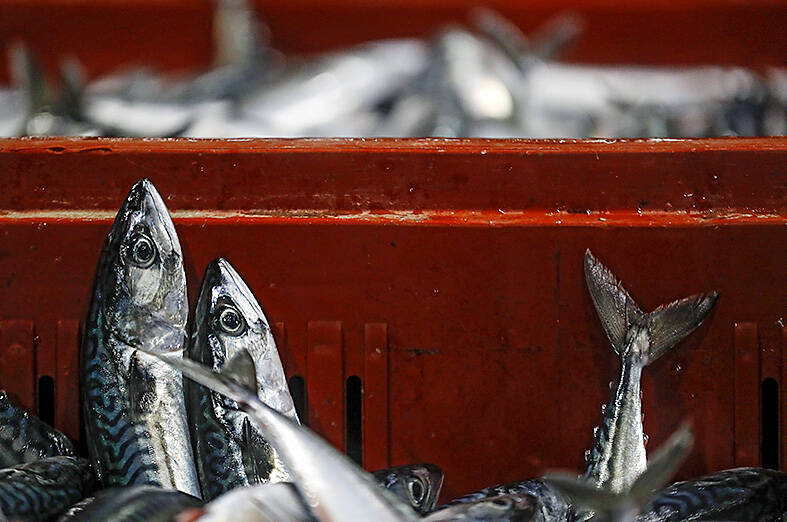Mackerel populations are declining because of overfishing and the fish is no longer a sustainable food choice, the Marine Conservation Society has said in its new UK guide to sustainable seafood.
North-east Atlantic mackerel has been considered an environmentally-friendly choice for consumers since before 2011, but the species has become increasingly scarce and now experts are calling for more regulation over how its caught.
The MCS reviews 186 environmental ratings for seafood, with 20 species moving to the “fish to avoid” list in this year’s spring update to its Good Fish Guide. The charity is calling on UK governments to better manage all stocks and collect more data, with monitoring involving cameras.

Photo: EPA-EFE
Charlotte Coombes, Good Fish Guide manager at the MCS, said: “The north-east Atlantic mackerel population has been declining since 2015, which is concerning. Fishing communities and wildlife depend on this species, but continued overfishing is putting both at risk.”
Mackerel is caught by various states, including Norway, Iceland, the UK, and countries in the EU. Currently, these countries are not working together to tackle overfishing of the species, the charity said. Coombes said countries need to agree on quotas “to protect stocks.”
In October 2021, the main fishing states again agreed that total mackerel catches in 2022 should not exceed the scientific advice (794,920 tonnes), but not how the catches should be divided. The combined catch limits set by all countries for 2022 totaled 1,131,416 tonnes, exceeding the advice by 42 percent.

Photo: Reuters
During March 2023, countries met to decide how to divide the next set of quotas. However, nothing was decided and talks are continuing.
The UK takes about 17 percent of the total mackerel catch, mostly from Scottish boats. In 2021, more than 220,000 tonnes of mackerel were caught — 32 percent of the total UK catch — worth about £240 million (US$300 million).
Mackerel is important prey for whales, dolphins, and tuna, the charity said, adding that removing too much of this species could have wider environmental effects.

Photo: EPA-EFE
Only 15 ratings have joined the green-rated “best choice” list this spring. The MCS use a traffic light system — green, red and amber — to show where fish rank, with mackerel moving to the amber list. An amber rating means that improvements are needed, in this case, better management to end overfishing of the stock.
Despite the bad news for international fishing, mackerel caught by hand line in south-west England remains green-rated. This is a low-impact way of fishing, and catches are strictly controlled. There are also protections in place for juvenile mackerel to make sure they can reproduce before they are caught.
Among the ratings that did not change were European eel and Celtic cod, which stay on the red-rated “fish to avoid” list.

Photo: EPA-EFE
Jack Clarke, sustainable seafood advocate at the MCS, said: “Eel is still appearing on menus across the country, despite being more endangered than the Bengal tiger. Populations have declined by as much as 95 percent in the past decade and recent scientific advice couldn’t be clearer — it’s time to stop eating eel. It’s the most trafficked animal on the planet, with an illegal eel trade estimated to be worth £22.5 billion every year.”
Celtic cod is often caught by boats catching haddock and whiting, as they are often found together in the marine environment.
A spokesperson for the Department for Environment, Food and Rural Affairs said: “The UK is working intensively with its partners to agree a range of management measures designed to improve the long-term sustainability of mackerel stock, in addition to a new quota sharing arrangement.
“We will continue to work with those partners, in consultation with stakeholders, to establish the most effective range of measures to ensure the long-term health of the stock.”

The slashing of the government’s proposed budget by the two China-aligned parties in the legislature, the Chinese Nationalist Party (KMT) and Taiwan People’s Party (TPP), has apparently resulted in blowback from the US. On the recent junket to US President Donald Trump’s inauguration, KMT legislators reported that they were confronted by US officials and congressmen angered at the cuts to the defense budget. The United Daily News (UDN), the longtime KMT party paper, now KMT-aligned media, responded to US anger by blaming the foreign media. Its regular column, the Cold Eye Collection (冷眼集), attacked the international media last month in

On a misty evening in August 1990, two men hiking on the moors surrounding Calvine, a pretty hamlet in Perth and Kinross, claimed to have seen a giant diamond-shaped aircraft flying above them. It apparently had no clear means of propulsion and left no smoke plume; it was silent and static, as if frozen in time. Terrified, they hit the ground and scrambled for cover behind a tree. Then a Harrier fighter jet roared into view, circling the diamond as if sizing it up for a scuffle. One of the men snapped a series of photographs just before the bizarre

Feb. 10 to Feb. 16 More than three decades after penning the iconic High Green Mountains (高山青), a frail Teng Yu-ping (鄧禹平) finally visited the verdant peaks and blue streams of Alishan described in the lyrics. Often mistaken as an indigenous folk song, it was actually created in 1949 by Chinese filmmakers while shooting a scene for the movie Happenings in Alishan (阿里山風雲) in Taipei’s Beitou District (北投), recounts director Chang Ying (張英) in the 1999 book, Chang Ying’s Contributions to Taiwanese Cinema and Theater (打鑼三響包得行: 張英對台灣影劇的貢獻). The team was meant to return to China after filming, but

Power struggles are never pretty. Fortunately, Taiwan is a democracy so there is no blood in the streets, but there are volunteers collecting signatures to recall nearly half of the legislature. With the exceptions of the “September Strife” in 2013 and the Sunflower movement occupation of the Legislative Yuan and the aftermath in 2014, for 16 years the legislative and executive branches of government were relatively at peace because the ruling party also controlled the legislature. Now they are at war. The Democratic Progressive Party (DPP) holds the presidency and the Executive Yuan and the pan-blue coalition led by the